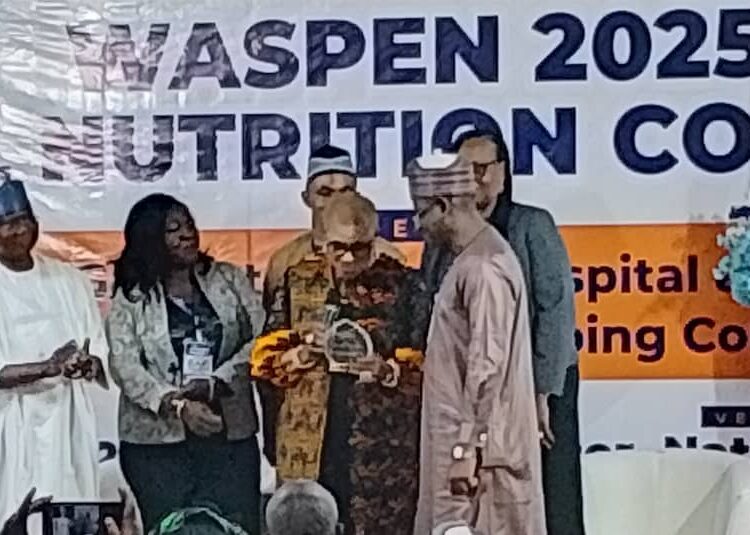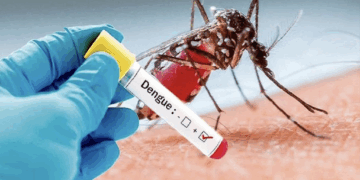Health experts have raised concern over the widespread but under-recognised crisis of clinical malnutrition in Nigerian hospitals, calling for urgent interventions to prevent avoidable deaths and improve patient outcomes.
The experts, who spoke at the 2025 Clinical Nutrition Conference, organised by the West African Society of Parenteral and Enteral Nutrition (WASPEN), themed: “Bridging the Gap: Integrating Hospital, Community and Malnutrition Care in Developing Countries” at the National Hospital Abuja, stressed the need for urgent intervention to bridge clinical nutrition gaps in hospitals.
The founder of WASPEN, Dr. Teresa Pounds, said many patients in Nigerian hospitals were discharged without their nutritional needs being assessed or addressed, particularly those unable to feed due to critical illness.
She warned that the absence of proper nutritional screening systems, trained clinical nutrition teams, and appropriate products was costing lives across the country.
“We’re not identifying them, and we’re not doing enough to treat them. Our goal is for every hospital patient in Nigeria to be screened for nutritional status. Proper hospital nutrition is not just about food, it involves intravenous and enteral feeding when necessary,” she said.
Citing the recent death of a malnourished newborn due to lack of specialised feeding products, Dr. Pounds called it a tragic but preventable loss. “That should not happen in this day and age,” she said.
To address the challenge, she called for investment in trained multidisciplinary teams comprising dietitians, pharmacists, nurses, and physicians, backed by evidence-based practices and access to quality nutritional products.
She also revealed that Nigerian pharmaceutical company Fitzen was partnering with her to begin local production of parenteral nutrition formulas. “They have the infrastructure, I have the clinical expertise. By God’s grace, production will soon begin. Others should follow suit,” she said.
Dr. Pounds urged the federal government to match its commitment to tackling community malnutrition with equal focus on clinical nutrition in hospitals. She called on the National Health Insurance Authority (NHIA) to include clinical nutrition services in its coverage and pushed for reforms to formally recognise nutrition as an integral part of medical care.
“President Tinubu and his team have committed funds to fight community malnutrition. We’re saying: do the same for hospital malnutrition. Fund the products. Fund the systems,” she stressed.
The Coordinating Minister of Health and Social Welfare, Prof. Ali Pate, reaffirmed the government’s commitment to improving nutrition outcomes nationwide.
Represented by the Director, Nutrition Information System, Dr Emmanuel Abata, the minister said the ministry was expanding its interventions to all 774 local government areas through the N774 Nutrition Project.
“Our goal is to ensure that nutrition support does not end at hospital discharge but continues seamlessly in the community,” he said.
The ministry, he added, is also working with WASPEN to standardise clinical nutrition practices through the National Guidelines for Integrated Management of Acute Malnutrition.
The Mandate Secretary for Health Services and Environment, Federal Capital Territory Administration (FCTA), Dr. Adedolapo Fasawe, highlighted the country’s dual burden of undernutrition and overnutrition.
Represented by the Managing Director, FCT Hospital Management Board, Dr. Gbenga Bello, she noted that poor access to life-saving interventions like parenteral nutrition remains a major gap.
Also speaking, chairman of the conference and former President of the Pharmaceutical Society of Nigeria (PSN), Professor Cyril Usifo, provided sobering statistics, revealing that over 37 per cent of Nigerian children are stunted and about two million suffer from severe acute malnutrition.
He warned that many patients continue to die after discharge because their nutritional needs were never addressed during their hospital stay.
He called for stronger partnerships with local pharmaceutical firms to develop affordable indigenous nutrition formulas and urged nationwide efforts to train healthcare workers and educate the public on the importance of clinical nutrition.
The Chief Medical Director of the National Hospital Abuja, Prof. Muhammad Raji Mahmud, reaffirmed the hospital’s unwavering commitment to collaboration, knowledge exchange, and comprehensive healthcare delivery across all levels.
he said the decision to host the event was an easy one, given the hospital’s longstanding reputation for supporting innovative and collaborative health initiatives.
“You just mentioned she was requesting for National Hospital to host it. I don’t think I allowed her to finish the statement before saying yes, yes, yes,” Prof. Mahmud remarked, adding that the hospital thrives on cross-germination of ideas, skills, and knowledge, key ingredients for institutional and professional growth.





